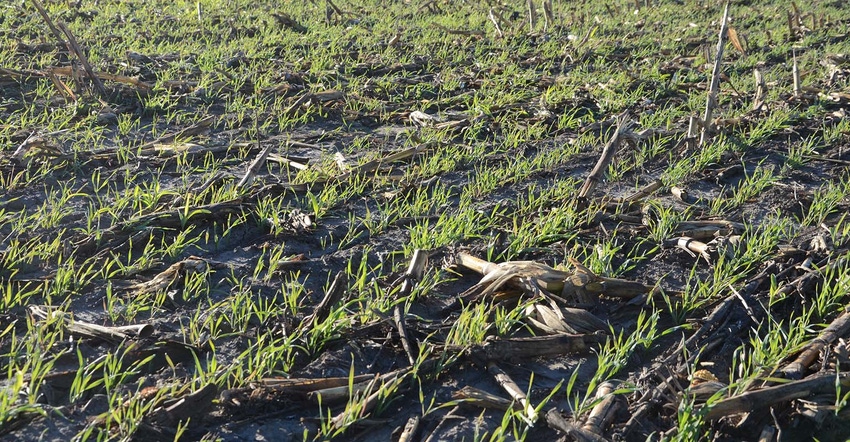July 18, 2019

Research shows that practices designed to improve soil health also reduce nutrient loss to waterways, reduce greenhouse gas emissions, increase carbon sequestration and increase biodiversity, according to the Soil Health Institute.
The Soil Health Institute was created by the Samuel Roberts Noble Foundation and the Farm Foundation, “to safeguard and enhance the vitality and productivity of soil through scientific research and advancement.”
The Institute released a strategy for enhancing soil health at its fourth annual meeting in Sacramento, Calif. You can see the strategy in the video at the end of this story.
"To achieve such goals at scale, we must provide our land managers, primarily farmers and ranchers, with the information they need when deciding whether to adopt soil health-promoting practices," said Dr. Wayne Honeycutt, CEO of the Soil Health Institute. "That means a key component of our strategy is to assess the impacts of soil health adoption on profitability and economic risk. Another is to identify the most effective measurements for soil health because farmers cannot be expected to manage what they cannot measure. We then need to provide workshops on locally-relevant management practices proven by other farmers to work for them.”
In addition, Honeycutt described how information must be supported by a strong research and development program that producers, policy analysts, and society can trust.
"It is important that we assess the impacts of adoption on productivity and profitability because that supports the business case,” he said. “We also need to quantify effects on the environment because this supports well-informed policies and provides the evidence needed for educating consumers about the environmental benefits of soil health systems. Such information can help create more market demand for food and fiber grown using soil health practices so that the entire system becomes self-sustaining and does not depend on government assistance."
Source: Soil Health Institute, which is solely responsible for the information provided and is wholly owned by the source. Informa Business Media and all its subsidiaries are not responsible for any of the content contained in this information asset.
You May Also Like




